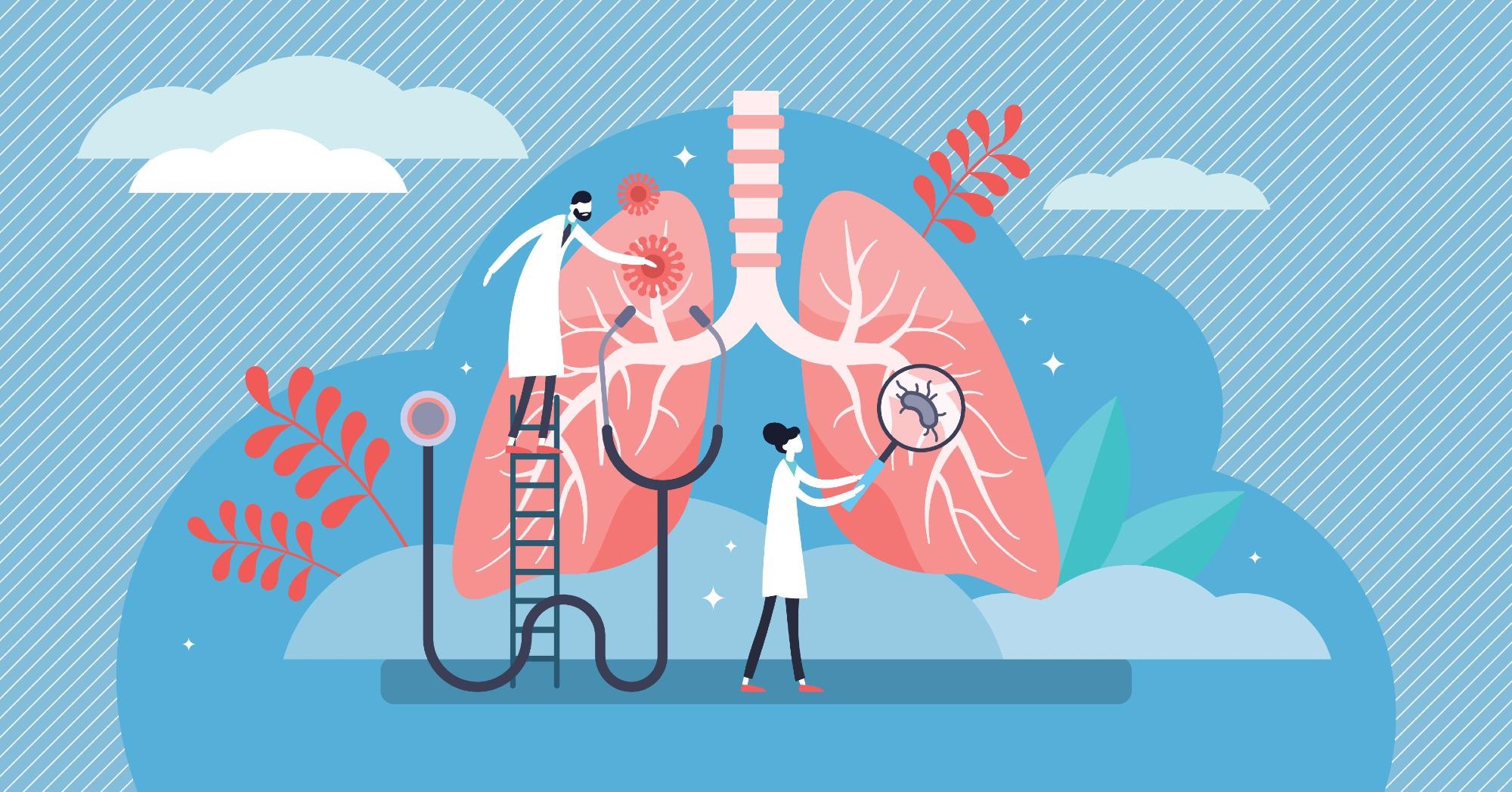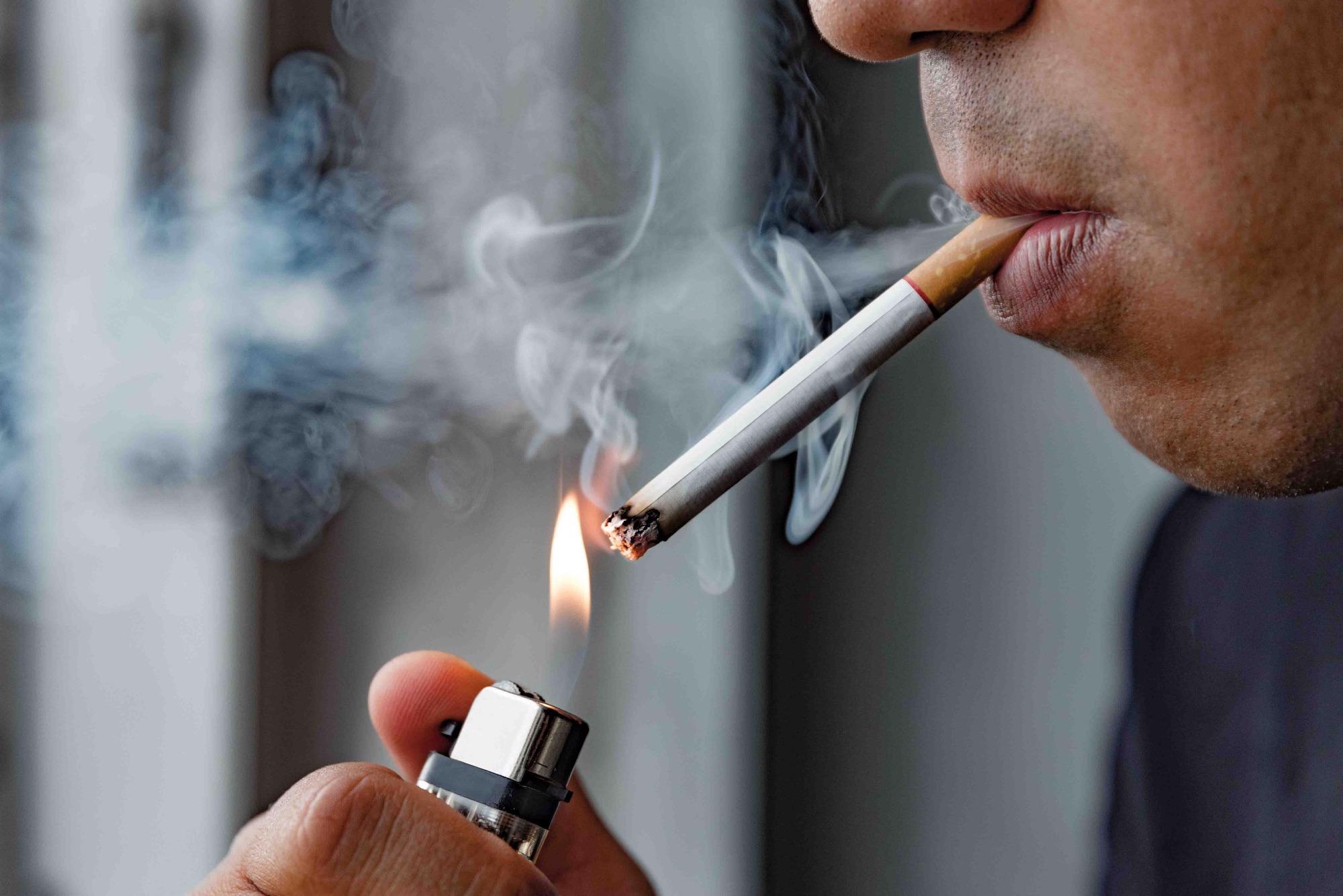Lung cancer, the growth of malignant cells in the lung, is the most common cause of cancer-related death in men and women worldwide. Unfortunately, the general prognosis for patients with lung cancer is poor because the condition is usually only diagnosed once it has reached an advanced stage. For early-stage lung cancer, the five-year survival rate is between 40% and 50%, but for advanced disease, the rate is only between 1% and 5%.
 Image Credit: VectorMine / Shutterstock
Image Credit: VectorMine / ShutterstockCancer prevention is any action taken to decrease the risk of cancer developing. To help prevent new cancers from developing, scientists examine risk factors (anything that increases the chance of cancer developing) and protective factors (anything that lowers the risk of cancer developing). Avoiding cancer risk factors and increasing the number of protective factors may help reduce the risk of cancer developing but cannot guarantee that cancer will not develop.
Avoiding Lung Cancer
Avoiding risk factors
Avoiding risk factors for cancer may help to stop certain cancers from developing. For example, the following are known risk factors for lung cancer.
 Tobacco smoking is responsible for 90% of lung cancers in men and 80% of lung cancers in women. Image Credit: Nopphon_1987 / Shutterstock
Tobacco smoking is responsible for 90% of lung cancers in men and 80% of lung cancers in women. Image Credit: Nopphon_1987 / Shutterstock
Tobacco smoking
This is the most critical lung cancer risk factor. Tobacco smoking is responsible for 90% of lung cancers in men and 80% of lung cancers in women. The risk of developing lung cancer increases with the number of cigarettes smoked each day and the number of years a person has been smoking. Smokers are at 20 times the risk of developing lung cancer compared with non-smokers.
Passive smoking
Second-hand smoke is also a risk factor for lung cancer. This is because the same cancer-causing agents inhaled when a person smokes are also present in second-hand smoke, although in smaller amounts.
Family history
People with a relative who has had lung cancer have twice the risk of developing it than people with no family history of the condition. However, since cigarette smoking tends to run in families, it is difficult to determine whether the increased lung cancer risk results from genetic factors or exposure to cigarette smoke.
HIV infection
HIV infection is associated with an increased risk of lung cancer. However, smoking rates tend to be higher amongst individuals with HIV, meaning it is difficult to determine whether the increased lung cancer risk results from HIV infection or exposure to cigarette smoke.
Environmental risk factors
These include radiation exposure, workplace exposure to certain substances, and air pollution.
Radiation exposure
Sources of radiation exposure include atomic bomb radiation, imaging tests, radiotherapy, and radon. Exposure to radiation after an atomic bomb explosion is a known risk factor for lung cancer. During Imaging tests such as CT scans, patients are exposed to radiation. Patients are exposed to less radiation during a low-dose spiral CT scan than during a high-dose scan. Radiotherapy uses different types of radiation, including X-rays and gamma rays, which may increase the risk of lung cancer, especially if the radiation is received in high doses. The radioactive gas radon can seep into homes via cracks in the flooring, foundations, or walls, and radon levels may build up over time, increasing exposure to radiation and, therefore the risk of lung cancer.
Workplace exposure
Research has shown that exposure to the following substances increases lung cancer risk: asbestos; chromium; arsenic; nickel; cadmium; tar; beryllium.
Air pollution
Research has also shown that people exposed to high levels of pollution are at a greater risk of developing lung cancer.
Protective risk factors
The following factors are protective against the risk of developing lung cancer.
Not smoking
This is the most effective way to prevent lung cancer from developing.
Quitting smoking
People who smoke can lower their risk of developing lung cancer by stopping smoking.
Antidepressant therapy, counseling and nicotine replacement aids have previously helped smokers quit. For a person who has quit, the likelihood of lung cancer being prevented depends on how many cigarettes the person smoked and how long it has been since they quit. After ten years of quitting, the lung cancer risk decreases from 50% to 30%.
Lower exposure to risk factors in the workplace
Laws that protect individuals from being exposed to cancer-causing agents in the workplace, such as cadmium, chromium, or asbestos, may help to reduce the risk of people developing lung cancer. In addition, laws against smoking in the workplace also help lower the risk of people developing lung cancer due to passive smoking.
Lower radon exposure
Lowering the level of radon may decrease lung cancer risk, particularly among people who smoke. The radon level in a home can be reduced by taking measures to stop leakage, such as sealing the basement.
How does lung cancer affect the body?
Sources
Further Reading
Last Updated: Feb 17, 2023